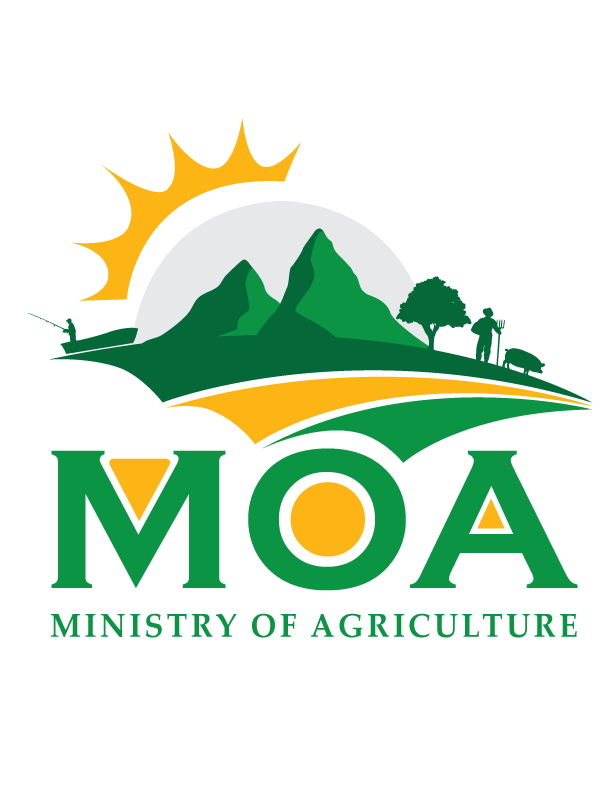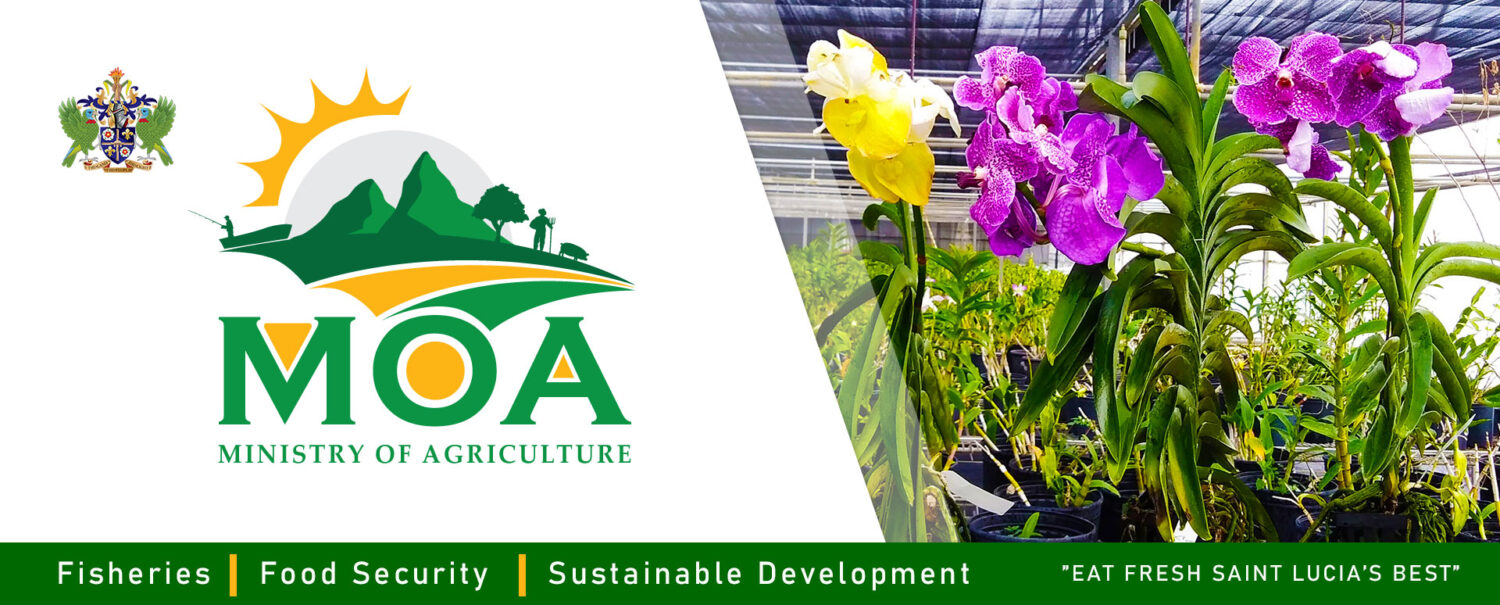
The Caribbean Agricultural Research and Development Institute (CARDI) celebrates its 49thAnniversary
December 5, 2023
The Caribbean Agricultural Research and Development Institute (CARDI) celebrates its 49thAnniversary
Tuesday 5th December 2023 is CARDI Day – an important day in our annual outreach calendar, dedicated to highlighting the Institute’s achievements. This year CARDI will be celebrating its 49th anniversary and to commemorate this special occasion, offices across the region will be hosting a variety of on site, engaging activities that will provide our multi-stakeholder network with the opportunity to learn more about the Institute’s work and contribution to agriculture development. The date is symbolic as it marks the anniversary of the signing of the agreement establishing CARDI in 1974, in Georgetown, Guyana.
According to Executive Director, Ansari Hosein “CARDI Day provides a platform for us to be transparent and accountable to our donors and member states. Apart from instilling trust, it is important for them to know and see that their resources are being used wisely and efficiently. Additionally, beneficiaries, other partners and stakeholders will gain a better view of the impact of our work and learn how these results can be used to achieve improved agriculture production and productivity. CARDI Day also provides another opportunity for the Institute to receive feedback from its clients and make the relevant adjustments to the way we operate so that there is maximum positive impact on beneficiaries”.
In the face of challenges and disruptions during the year, the Institute continued to thrive. As a priority, we continue to advocate for an increase in funding for agricultural research, noting that this is pivotal to helping the CARICOM region achieve vision 25 x 2025 and the Food and Agriculture Systems Transformation (FAST) Strategy of the OECS.
Climate extremes driven by an El Niño event since June have been impacting agriculture production across the Caribbean. Record breaking temperatures have resulted in crop failures, reduced yields and higher incidence of pests and diseases. Resilience building is embedded in our programmes and projects and will remain a priority area of focus.
This is the final year of the 8 year European Union (EU) financed regional coconut project. The project has made interventions in critical areas along the coconut value chain to address challenges like the unavailability of quality planting material, pests and diseases, access to financing and value added product development, among others. To address the unavailability of quality planting material, 75 nurseries were established/rehabilitated in the 12 project countries. Collectively, these nurseries have the capacity to produce over 300,000 coconut seedlings per year. Based on the capacity, the potential acreage that can be planted out with material produced from these nurseries is at least 14,052 ha for each grow-out batch. The introduction of the Brazilian Green Dwarf into Guyana has been hailed as a game changer to the industry with many other member states now expressing interest in acquiring this variety. 13,000 seed nuts of this variety were also imported into Dominica. Support has also been extended to Belize which expressed interest in re-introducing lethal yellowing tolerant and dual-purpose coconut varieties into the country. This was done through facilitation of the importation of 8,000 Maypan coconut seed nuts into Belize from our partners in Jamaica, the Coconut Industry Board. Additionally, extensive capacity building activities have been undertaken to equip farmers with knowledge and skills to manage pests like the South American Palm Weevil, coconut cockle and coconut mite. As the project winds down, sustainability measures are being finalised to ensure continuity of the work started under the project.
Under the Caribbean Development Bank’s financed Sweet Potato Value Chain Enhancement and Technology Transfer project, research work is ongoing to identify and improve the availability of market preferred and climate resilient sweet potato varieties/genotypes. Agro ecological zone and drought tolerant trials are ongoing in 4 member states. The results of these, coupled with the development of extension aids to transfer technologies developed to the end users will assist with closing the huge gap that exists between potential and actual yield in the Caribbean.
By the end of 2023, twelve schools in Trinidad and Tobago and Barbados will benefit from climate smart school gardens. The goal of these projects is to promote positive attitudes and awareness among children in learning how to grow healthy food for better nutrition. These school gardens are also important learning tools for food education among students, teachers and parents and will help to stimulate interest in agriculture from an early age.
Belize and Grenada led the way with the production and supply of quality planting material to farmers. More than 27 kg of Moruga Red seeds were produced by CARDI Antigua and Barbuda and sold to farmers across the region. From this quantity, 461 ha of hot pepper was cultivated. As the Center for the Institute’s cereal and grain legumes programme, CARDI Belize produced 309 kg of corn seeds and 51 MT of soybean grain as well as seeds for red beans, black beans and peanuts. CARDI Grenada produced and sold over 30,000 vegetable seedlings for the farming community in 2023 and facilitated regular training in nursery establishment and management.
In 2023, CARDI also began implementation of the ‘Innovative Early Detection Pest and Disease Management System using IoTree® sensor in the Real-Time Digital Monitoring of South American Palm Weevil for Conserving Coastal Coconut Palms in Select CARIFORUM Countries’ project. This project involves the deployment of sensors to monitor and detect the presence of the South American Palm Weevil (SAPW) in coconut palms in 9 coastal communities in Trinidad and Tobago, St. Vincent and the Grenadines and St. Lucia. The deployment of this technology will inform timely mitigation and control strategies for the pest. The project is funded by the ACP Innovation Fund, OACPS Research and Innovation Programme, a programme implemented by the Organisation of African, Caribbean and Pacific States, with the financial contribution of the European Union.
In Barbados, CARDI in partnership with the Caribbean Regional Fisheries Mechanism (CRFM), the New Zealand Institute of Plant and Food Research and the University of the West Indies, also began implementing the ‘Sargassum Products for Climate Resilience in the Caribbean’ project which supports the development and field testing of a prototype liquid fertilizer or plant growth promoter and compost derived from Sargassum. Results for this are expected in early 2024.
CARDI is one of the project implementing partners for Component 2 “Integrated Landscape Management for Addressing Land Degradation, Food Security and Climate Resilience Challenges in The Bahamas” project. Under this Global Environmental Facility (GEF) funded project CARDI will facilitate the activities that demonstrate regenerative agriculture and resilient food production systems, practices, and technologies in the Bahamas.
These are a few examples of some of the work done by the Institute over the last year. As we get set to usher in our new Strategic Plan (2024-2028), the Institute remains committed to providing science based solutions to reposition the agriculture sector. We will continue to expand our partnerships to support agriculture development to have a greater regional impact.
The achievements of the last year would have been impossible without the support of our staff – the people who work every day to build a better institute, thank you for your commitment and selfless service.
In closing, we also wish to express our thanks to our Board of Governors and Board of Directors, all partners, donors and collaborators for their steadfast support and wish everyone a Happy CARDI Day 2023.

